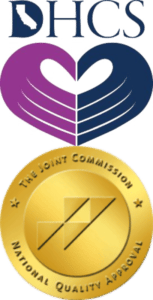Medically Reviewed by: Eric Chaghouri
Navigating the recovery journey from drug addiction presents a significant challenge, often likened to steering a ship through stormy seas. The threat of relapse—resuming drug use after an attempt to cease—stands as a dark, looming presence, akin to unpredictable waves ready to derail those unprepared. This article serves as a guiding light, illuminating the essential coping skills for relapse prevention. These skills act as life-saving rafts, ensuring that individuals traversing the tumultuous waters of recovery maintain their course toward the serene shores of lasting sobriety.
Understanding Relapse and Coping Skills for Relapse Prevention
The Process of Relapse: Highlighting the Need for Coping Skills
Grasping the concept that relapse is often not an isolated incident but rather a process is crucial for anyone in recovery. This process is typically segmented into emotional, mental, and physical stages.
Emotional relapse is marked by feelings that indirectly set the stage for drug use, such as anxiety or irritation, even before the individual consciously considers using again. Mental relapse is characterized by an internal conflict—one part of the individual yearns to use drugs, while another part strives to remain sober. Finally, physical relapse is the act of using drugs once more.
Early recognition of these stages is key to deploying coping skills for relapse prevention effectively, allowing individuals to intervene before the culmination of this process into physical relapse.
The Role of Mental Health in Relapse Prevention
Mental health plays a crucial role in the recovery journey, influencing both the risk of relapse and the effectiveness of coping skills for relapse prevention. Acknowledging the intersection between substance use disorder and mental health conditions is essential. Addressing underlying mental health issues through comprehensive addiction treatment programs can significantly enhance the recovery process.
This approach ensures that both the addiction and any co-occurring mental health challenges are treated simultaneously, offering a more holistic path to long-term recovery.
Key Coping Skills for Relapse Prevention
Negative thoughts and feelings are common triggers that can jeopardize recovery. Developing relapse prevention skills to manage these experiences is essential. Techniques such as mindfulness meditation can offer significant benefits, helping individuals stay present and reduce the impact of negative emotions. Moreover, recognizing early warning signs of emotional distress and having a relapse prevention plan in place allows for timely interventions, reducing the risk of relapse.
Emotional Regulation: A Cornerstone Coping Skill for Relapse Prevention
Mastering the ability to regulate emotions in a healthy manner, without resorting to drug use, stands as a cornerstone of relapse prevention. Techniques such as mindfulness, meditation, reiki therapy, and deep breathing exercises offer individuals a way to center themselves and navigate emotions constructively. These practices not only mitigate immediate distress but also contribute to a broader sense of peace and stability over time. Their significance in the repertoire of coping skills for relapse prevention cannot be overstated, as they provide a foundation for enduring sobriety by fostering emotional resilience and self-awareness.
Stress Management: An Essential Coping Skill for Relapse Prevention
Given the prominent role of stress as a trigger for many individuals, the development of effective stress management skills is indispensable. This entails strategies such as proficient time management to avoid becoming overwhelmed by commitments, regular physical activity to reduce stress levels physiologically, and relaxation techniques like yoga or progressive muscle relaxation to cultivate a sense of calm.
These stress management techniques are pivotal coping skills for relapse prevention. They equip individuals with the means to navigate life’s stresses in a manner that doesn’t lead back to drug use, underscoring their importance in maintaining a drug-free lifestyle.
Healthy Lifestyle Habits: Supporting Coping Skills for Relapse Prevention
The adoption of healthy lifestyle habits—comprising a balanced diet, consistent physical activity, and adequate sleep—lays the groundwork for a supportive environment conducive to recovery. These habits bolster physical health, enhance mood and mental well-being, and diminish the inclination to use drugs as a coping mechanism for life’s challenges. Integrating these habits reinforces the effectiveness of coping skills for relapse prevention by fortifying the individual’s overall resilience against triggers.
Recognizing Triggers: A Fundamental Coping Skill for Relapse Prevention
The concept of triggers—emotional or environmental cues that ignite the craving for drugs—is critical in the arena of relapse prevention. Emotional triggers encompass a wide range of feelings, from stress and anxiety to more intricate emotions like guilt and shame. Environmental triggers can include specific locations, social settings, or even individuals linked to the person’s history of drug use.
Recognizing these triggers is paramount as it forms the first line of defense in the battle against relapse. It empowers individuals to discern their behavioral patterns and devise effective strategies to either evade or confront these triggers. This emphasis on trigger identification underscores the pivotal role of coping skills for relapse prevention, enabling individuals to navigate their recovery with greater awareness and preparedness.
Implementing Coping Skills for Relapse Prevention in Daily Life
Engaging Family Members and Loved Ones in the Recovery Process
Involvement of family members and loved ones in the recovery process can significantly bolster relapse prevention efforts. Establishing a supportive system where loved ones are educated about addiction, the importance of interventions, and how to create a relapse prevention plan fosters a network of support. Encouraging open communication and participation in group therapy sessions can enhance understanding and empathy, creating a stronger support network for the individual in recovery.
Setting Realistic Goals: A Strategy Among Coping Skills for Relapse Prevention
Establishing clear, attainable goals furnishes individuals with direction and a sense of purpose, which can be profoundly stabilizing throughout recovery. These goals might pertain to personal growth, career aspirations, or milestones in the recovery process itself. The process of setting and achieving these goals not only boosts self-esteem but also fosters further motivation to remain drug-free. This illustrates the motivational power inherent in coping skills for relapse prevention, showcasing their capacity to inspire and sustain a commitment to sobriety.
Exploring Treatment Options: The Importance of a Comprehensive Treatment Plan
Choosing the right treatment center and engaging in treatment programs designed for substance use disorder are critical steps toward a successful recovery. A comprehensive treatment plan may include a combination of individual therapy, group therapy, and participation in support groups like Narcotics Anonymous or Alcoholics Anonymous. These programs offer education on addiction and relapse, teach relapse prevention skills and strategies, and provide a platform for sharing experiences with peers, contributing to a sense of community and belonging.
Overcome Addiction in Los Angeles
Acquiring and mastering coping skills for relapse prevention is akin to securing a compass and map for the intricate journey of recovery. It demands patience, persistence, and a willingness to seek support when necessary. Armed with these skills, individuals are better prepared to confront life’s triggers and stressors without succumbing to relapse. This journey steers them towards a healthier, drug-free future, marked by resilience and a renewed sense of purpose.
If you or a loved one are struggling with addiction, get in touch with No Matter What Recovery. Our drug addiction treatment in Los Angeles is dedicated to providing individuals in the LGBTQI+ community a safe and encouraging environment to overcome addiction.
FAQs About Relapse Prevention
The first signs of relapse often manifest as emotional and mental shifts. These may include increased feelings of stress or anxiety, reminiscing about drug use, or beginning to reconnect with old friends associated with drug use. Recognizing these early signs is critical for intervening before a physical relapse occurs.
Yes, effective stress management is a vital component of relapse prevention. High-stress levels can quickly overwhelm an individual, making the idea of using drugs more appealing as a form of escape. By managing stress through healthy outlets and coping mechanisms, the risk of relapse can be significantly reduced.
It’s wise to regularly review and adjust your coping strategies, especially after any major life changes or when you notice signs of increased stress or emotional distress. This can mean as often as every few months or whenever you feel your current strategies are not as effective as they once were.
Outpatient rehab programs offer crucial support during recovery by providing education on addiction and relapse, teaching coping skills, facilitating therapy sessions, and offering a supportive community. They are particularly valuable for individuals who need to maintain their work or family commitments while undergoing treatment.
Absolutely, it’s entirely normal to feel overwhelmed when learning new coping skills. Remember, you’re essentially rewiring how you handle stress, emotions, and life’s challenges. Be patient with yourself and recognize that mastery comes with practice and time.

Dr. Eric Chaghouri is our Medical Director at No Matter What Recovery. Since completing his forensic psychiatry fellowship, he has established a successful and thriving practice in Southern California, focusing on treatment of co-occurring psychiatric and addictive disorders.

Dr. Eric Chaghouri is our Medical Director at No Matter What Recovery. Since completing his forensic psychiatry fellowship, he has established a successful and thriving practice in Southern California, focusing on treatment of co-occurring psychiatric and addictive disorders.










